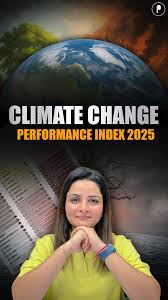Morocco has made history as the only African and Arab country to make it to the global top 10 rating on the 2025 Climate Change performance Index.
The North African nation takes the 8th place globally, leading both Africa and the Arab world. No other African nation features in the top 20 of this year’s ranking.
This comes as the UN Climate Change Regional Collaboration Centre for Asia and the Pacific ranks the Pacific Island countries as leading global efforts to align with the Paris Agreement’s 1.5°C target.
Despite contributing only 0.03 percent of global greenhouse gas emissions, Pacific Small Island Developing States (PSIDS) are showing strong climate ambition by aligning their Nationally Determined Contributions (NDCs) with the goal of carbon neutrality by 2050.
According to the report, titled ‘What does mitigation ambition mean for the Pacific?’, all 14 PSIDS submitted their first NDCs by 2015, and 11 have since submitted updated or enhanced second-round NDCs.
These include ambitious targets in renewable energy, sustainable transport, and nature-based solutions, with six countries aiming for 100 percent renewable energy.
Countries like Vanuatu, Fiji, and the Marshall Islands have adopted detailed sectoral strategies and investment plans focused on decarbonising their economies.
Many of these national targets are conditional on increased international finance and technology support.
The report arrives as countries prepare their third NDC submissions, known as NDC 3.0, under the Paris Agreement.
For PSIDS, climate ambition is not just about emissions—it is about survival in the face of sea-level rise, extreme weather, and ocean degradation.
Fiji was the first country to ratify the Paris Agreement and the first SIDS to preside over a UN climate summit at COP 23.
Papua New Guinea was the first to submit a formal NDC, while the Marshall Islands was among the earliest to file its INDC and continues to centre youth and Indigenous voices in its climate agenda.
Vanuatu has committed to phasing out fossil fuels an transitioning to a circular economy as part of its NDC roadmap.
Pacific countries are already taking advanced steps, including solar energy rollout, forest protection, and coastal ecosystem restoration.
Regionally, the 2050 Strategy for the Blue Pacific Continent places ocean-based climate solutions at the heart of long-term development.

